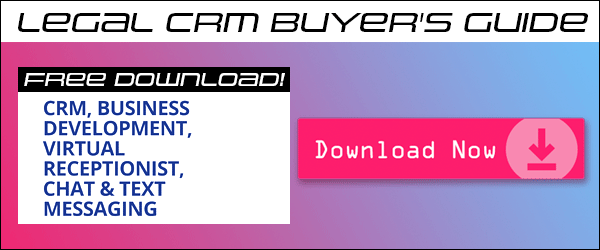Do You Need An A-Z Solution?
Technology columnist Jeff Bennion reviews the pros and cons of using one company for most or all of your software needs.
 A lot of software companies have been moving to become an A-Z solution — a company that, instead of just offering email, does email, document storage, billing, etc. Other companies are moving to lump seemingly unrelated litigation components together to create a kind of Frankenstein of software. Here are some pros and cons to having one company manage all of your software needs.
A lot of software companies have been moving to become an A-Z solution — a company that, instead of just offering email, does email, document storage, billing, etc. Other companies are moving to lump seemingly unrelated litigation components together to create a kind of Frankenstein of software. Here are some pros and cons to having one company manage all of your software needs.
The Cons
Sometimes, trying to do everything can overextend a company where it is not offering one great solution, but a handful of mediocre ones. Last year, I went to a legal convention and decided to check out the exhibit hall. There was one notable software company that had several products in the case management line, from organizing your depos, organizing your evidence, and now to trial presentation. I noticed several signs about how they handle all of my software needs.

The Global Legal News You Need, When You Need It
So, I asked a salesman if he could show me the trial presentation software. He didn’t know anything about it and I had to go through three people until someone finally told me that no one really knows much about it, they only bought it so that they could say that they are an A-Z solution. I’m sure there are probably teams of people in that company that know about that trial presentation software, but the bottom line is that it’s not a priority to the company. That tells me that it’s not going to get regular updates, I’m probably not going to get the same level of customer support as I do from a dedicated company, and the program is probably not going to have as many resources as a dedicated trial presentation company.
Take a look at Google Apps for Work. Google does a lot of great things better than anyone else. That doesn’t mean they have to try to do everything better than everybody. They have a business app software suite that includes a word processing app, a spreadsheet app, and a presentation app like PowerPoint. Each program has about the same level of functionality that you would expect from a phone app. For us legal types, you won’t be able to do a table of authorities or a table of contents. So what is the point of having a bunch of mostly functional software that is all owned by the same company if it does not do what I need it to do?
The Pros
Not all companies that offer A-Z solutions are trying to reinvent the wheel or extend into areas that are outside their expertise. For example, I will never stop using Outlook for calendar and emails. Some practice management tools integrate with Outlook so my Outlook calendar syncs with the practice management version of the calendar so I can make a quick calendar entry in my practice management software or send a quick e-mail while I have that portal open, but then use Outlook for more robust tools and features when I need to.
Sponsored

The Global Legal News You Need, When You Need It

Legal Knowledge Management To Drive Dealmaking

What Do Millennials Think Of Law Firm Life?

What Do Millennials Think Of Law Firm Life?
Another advantage is if you have multi-phased projects that are run with different software and using different vendors, you can have a bottleneck. A lot of e-discovery companies are moving towards an A-Z solution for this reason. For example, a common scenario is where you have one company that handles forensic data extraction, then prepares that data to give to another company that loads that information into a database program. If you have separate companies handling these parts of the process, you might run into instances where the first vendor prepares something in an incompatible format, or there is some miscommunication between the companies that causes confusion and delay. Often, when the second company can’t start work until the first company completes their part of the project, the first company is less motivated to act quickly because the are fired when they are done. It’s like a relay race where you hand the baton off to other teams when you finish your part. You are not going to kill yourself to complete your part. On the other hand, if all of the tasks are done by members of the same team, then everyone on that team is motivated to complete the entire project smoothly. You might have a team of people in the same room handling every aspect of the e-discovery project, so there will be fewer communication issues as you move from phase to phase.
When you have integration of your products, there is less of a learning curve to learn the other aspects of the software because they all have a fairly similar interface. So, if I’m not very good at QuickBooks, but I am familiar with most of the aspects of my practice management software, it would probably be faster for me to learn the billing and invoicing features of that software than to learn QuickBooks. Again, in e-discovery, we are seeing business litigation firms who can use the same software platform to gather and cull documents for a production that it would use for review when they are the requesting party. The firm doesn’t have to learn new software to do related tasks.
Of course, if you can bundle your services in a company that offers A-Z solutions, you can often get a better price.
Jeff Bennion is Of Counsel at Estey & Bomberger LLP, a plaintiffs’ law firm specializing in mass torts and catastrophic injuries. Although he serves on the Executive Committee for the State Bar of California’s Law Practice Management and Technology section, the thoughts and opinions in this column are his own and are not made on behalf of the State Bar of California. Follow him on Twitter here or on Facebook here, or contact him by email at jeff@trial.technology.
Sponsored

Stuck Drafting A Tough Brief? This Tool Can Help.









